
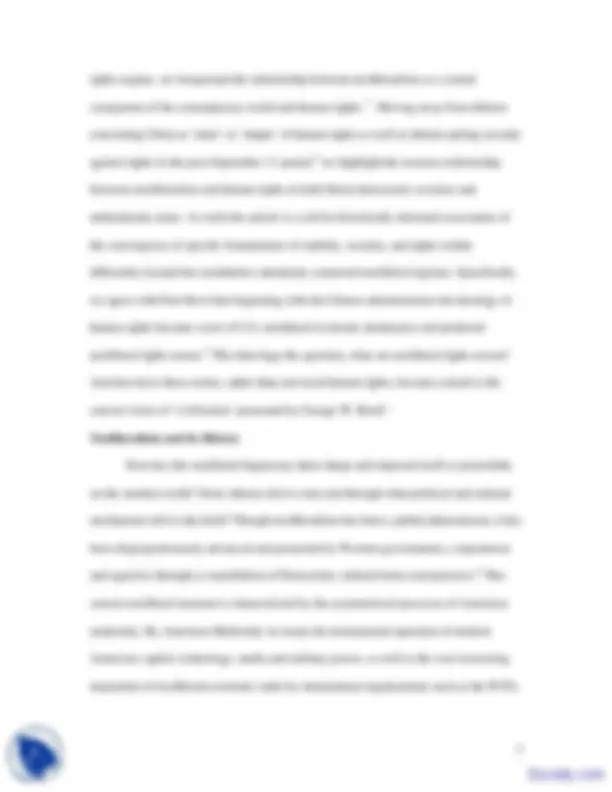
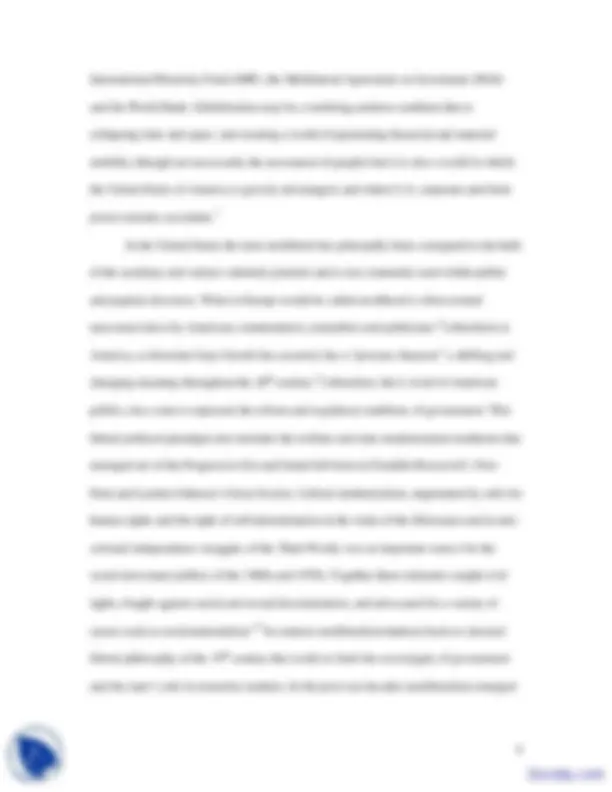
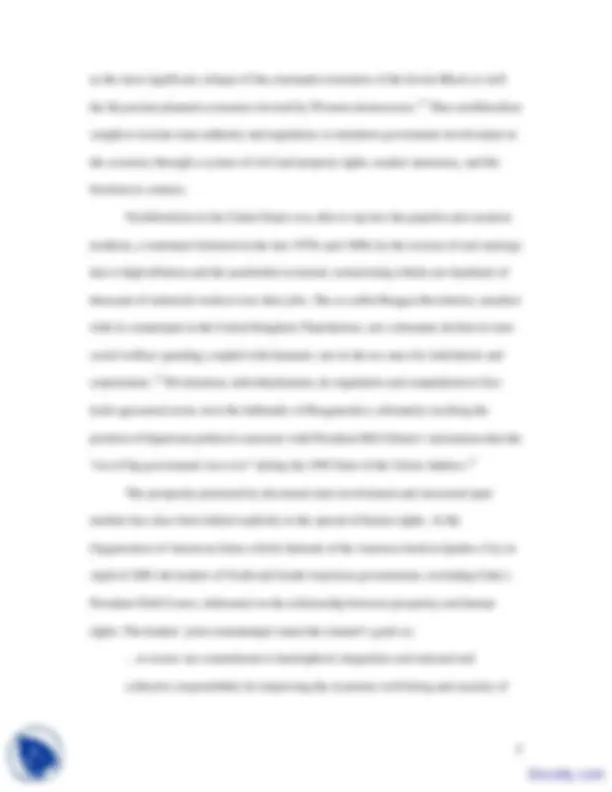
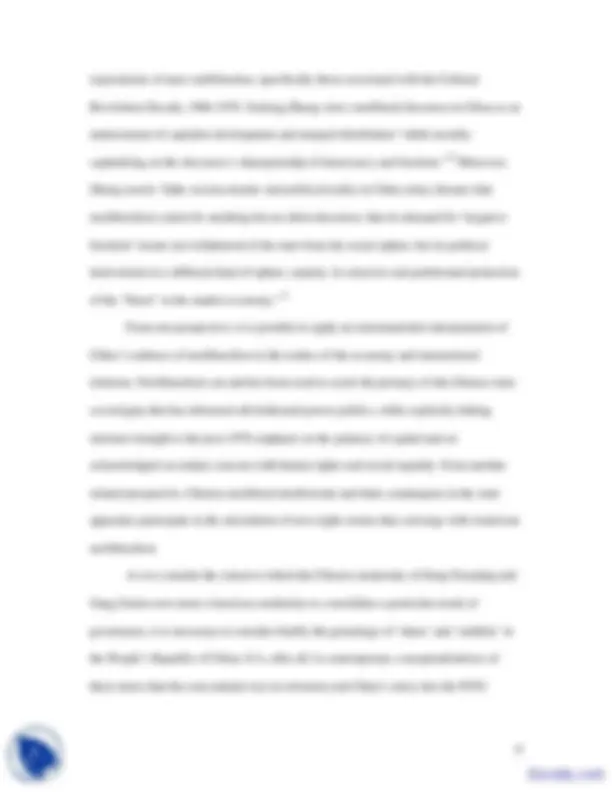
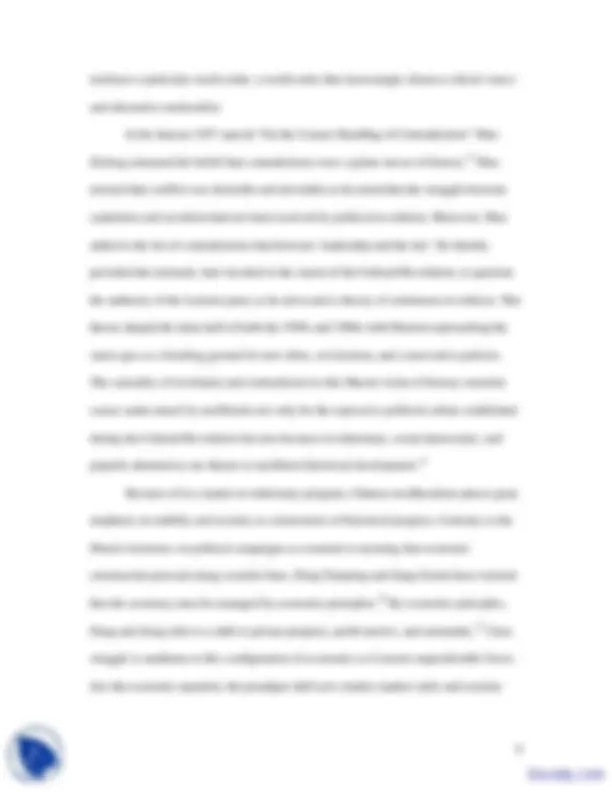
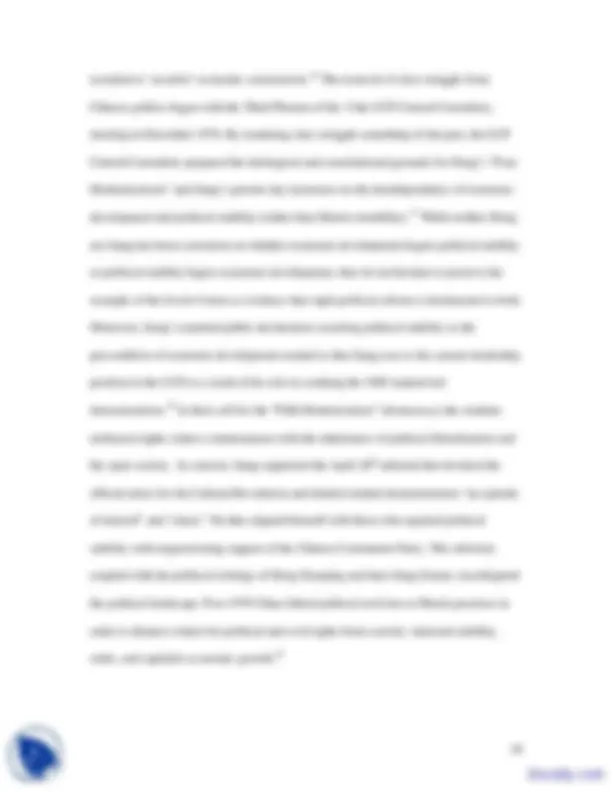
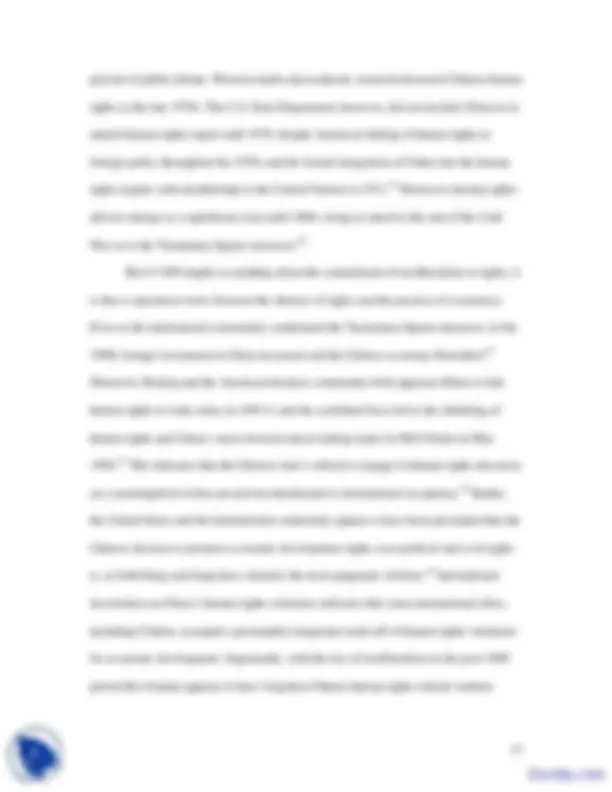
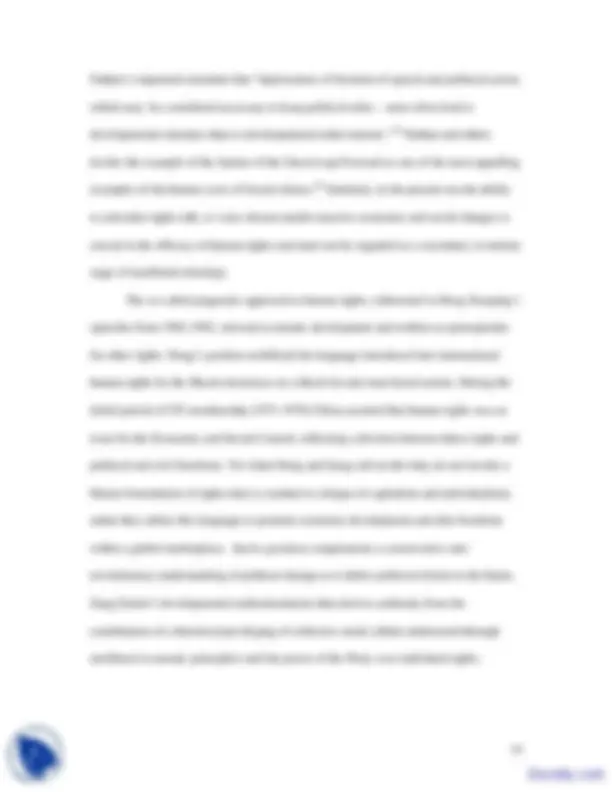
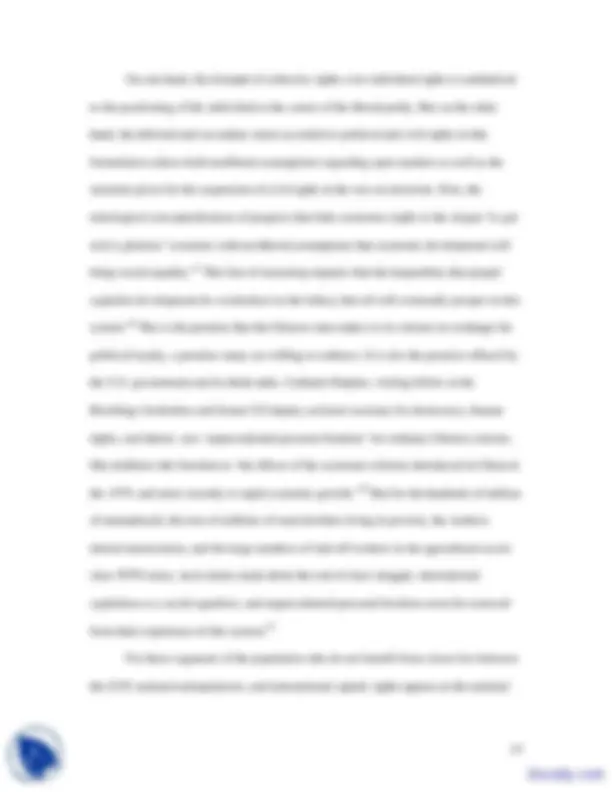
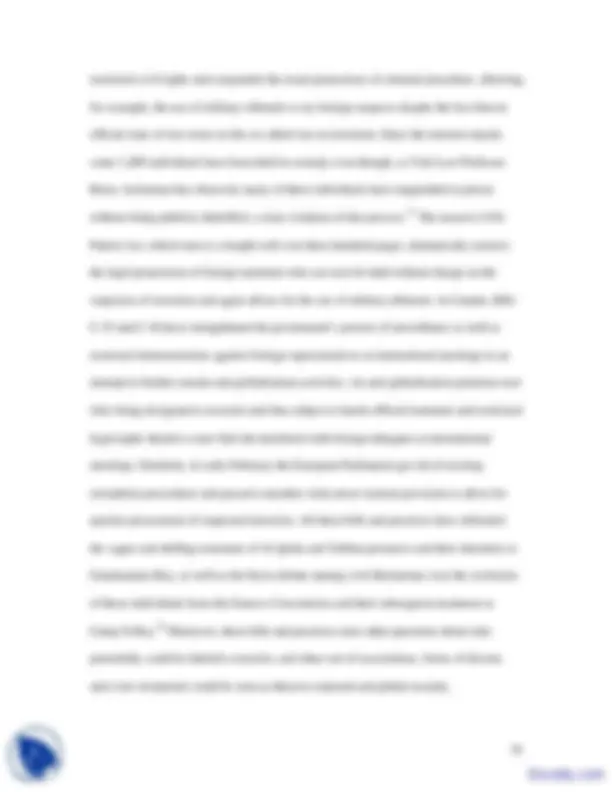
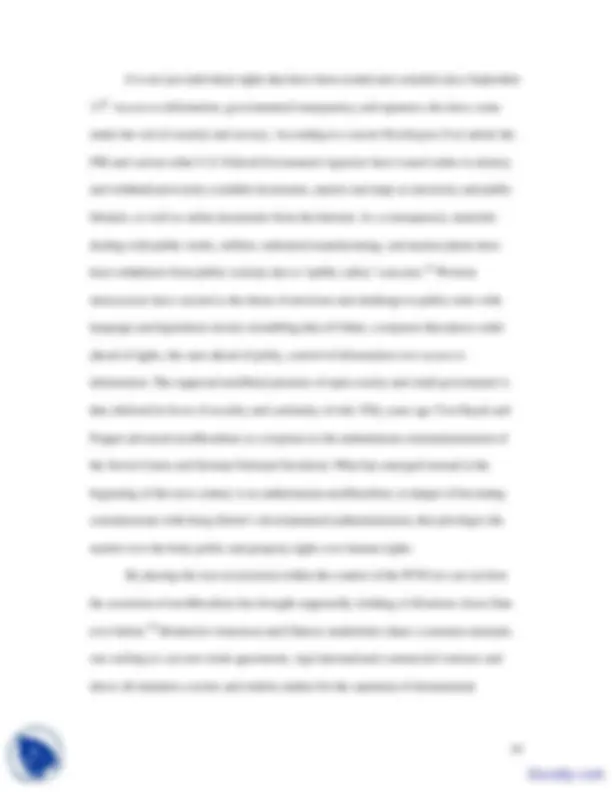
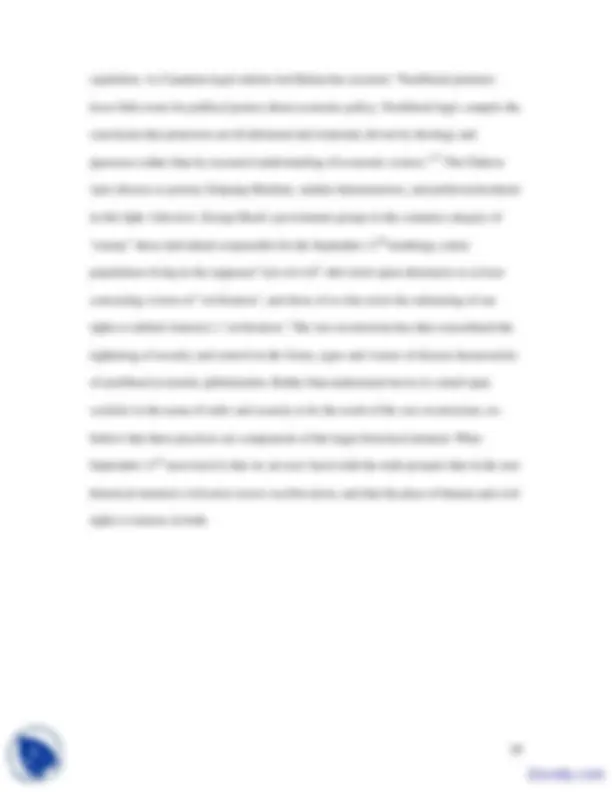
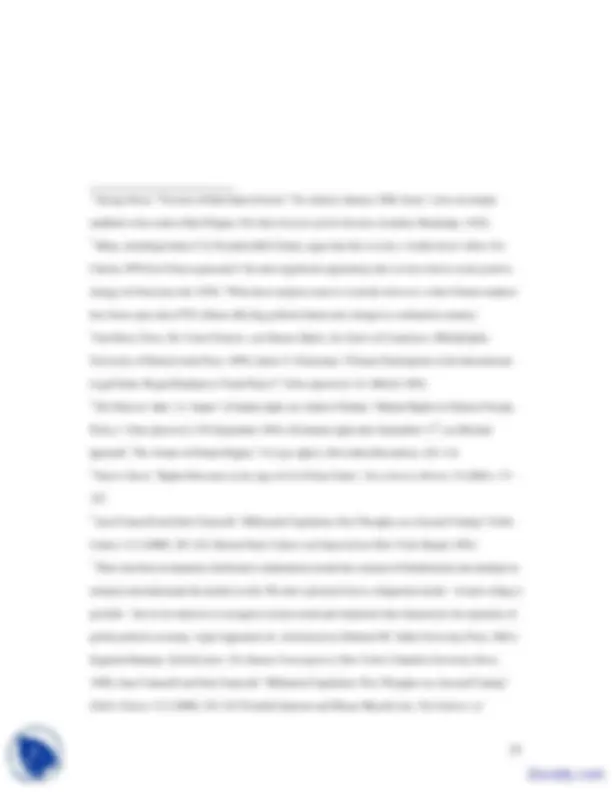
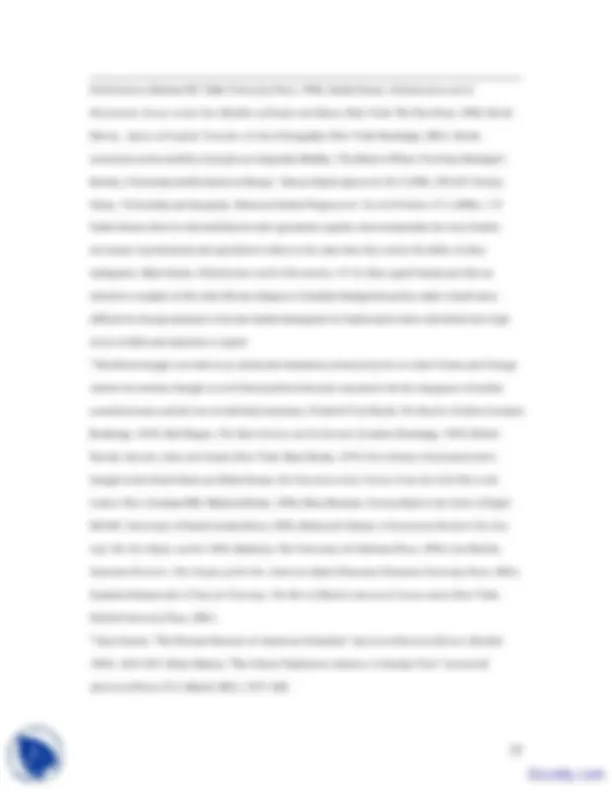
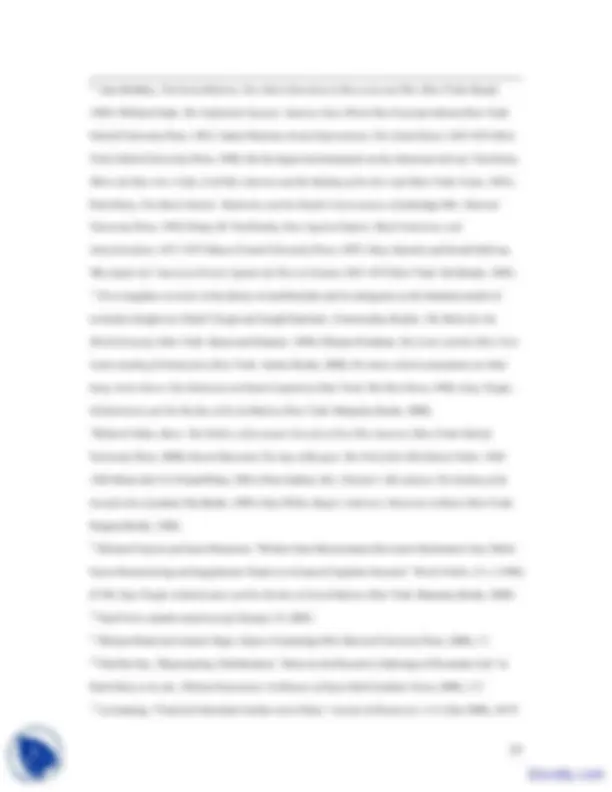
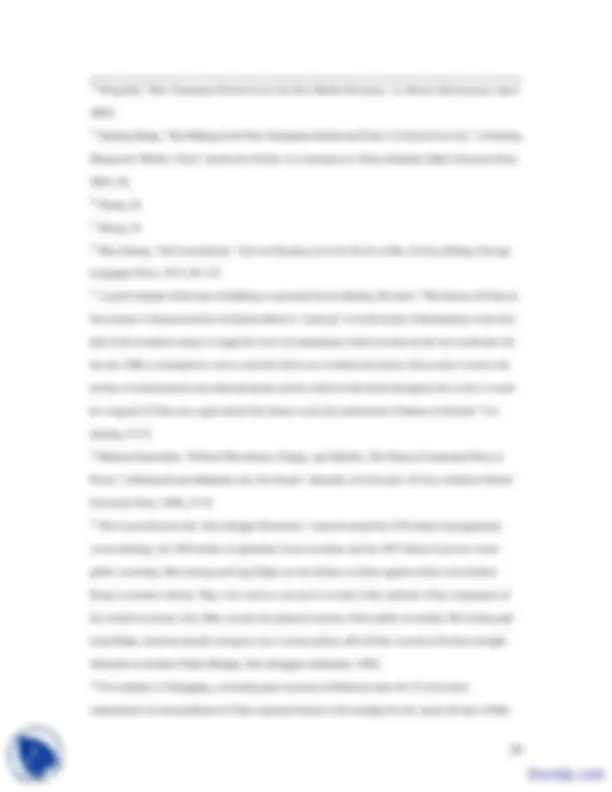
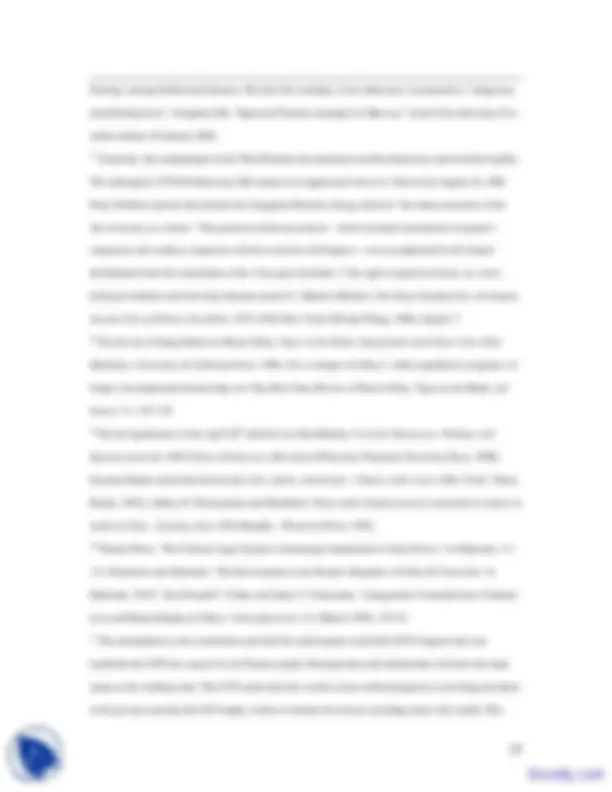
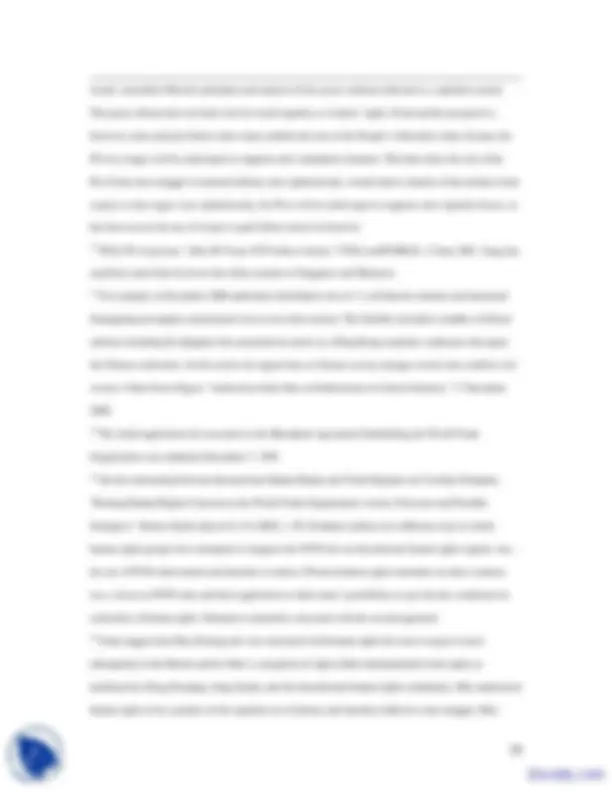
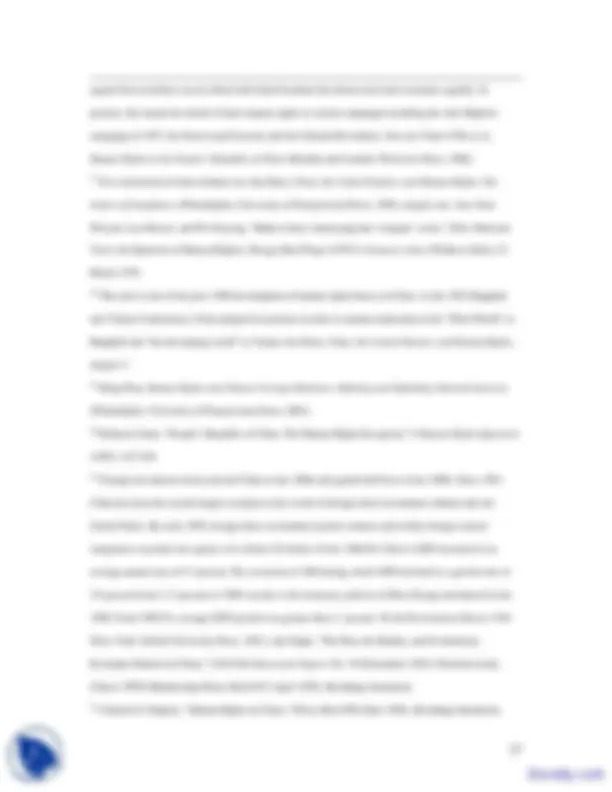
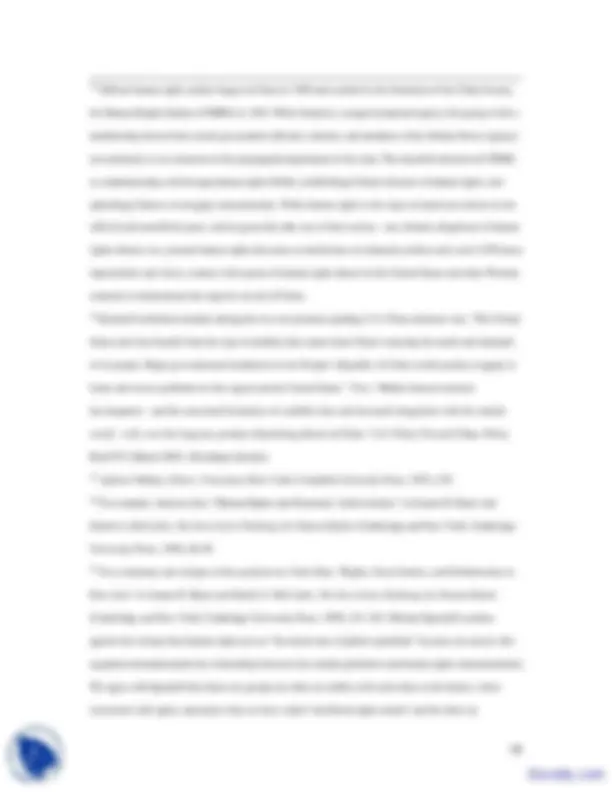
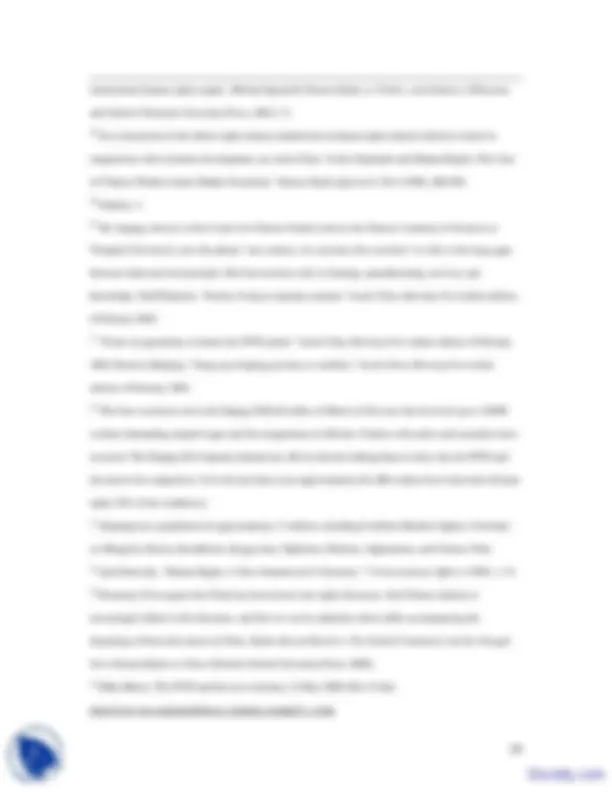
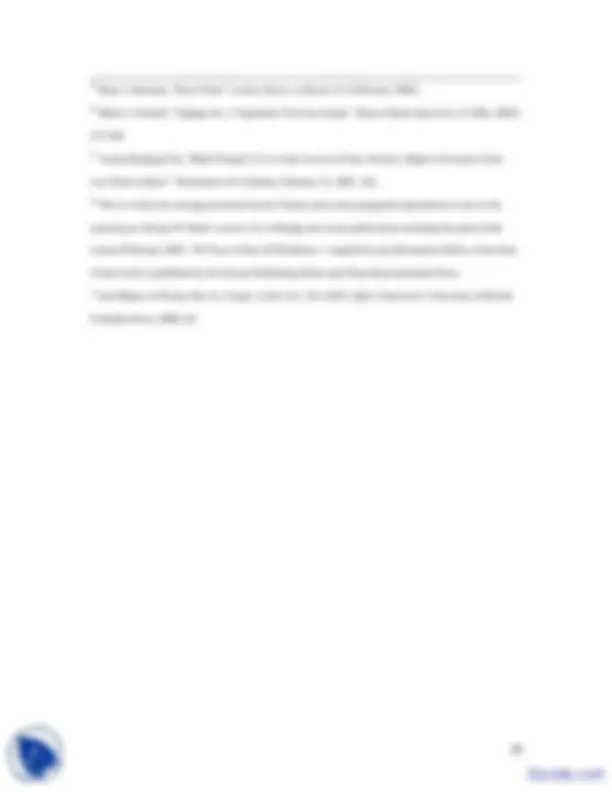


Study with the several resources on Docsity

Earn points by helping other students or get them with a premium plan


Prepare for your exams
Study with the several resources on Docsity

Earn points to download
Earn points by helping other students or get them with a premium plan
Community
Ask the community for help and clear up your study doubts
Discover the best universities in your country according to Docsity users
Free resources
Download our free guides on studying techniques, anxiety management strategies, and thesis advice from Docsity tutors
The relationship between neoliberalism and human rights, focusing on china's entry into the wto and the prioritization of elite interests over universal human rights norms. The text highlights how neoliberalism has influenced the human rights landscape in both liberal democratic societies and authoritarian states, including the united states and china.
Typology: Study notes
1 / 30

This page cannot be seen from the preview
Don't miss anything!























Neoliberal Civilization, the War on Terrorism, and the Case of China Tina Chen and David Churchill Fellow, International Center for Advanced Studies, New York University Assistant Professor of History, University of Manitoba
In the aftermath of September 11th^ commentators, journalists and scholars were quick to opine that the world had changed, that the world had entered a new historical moment and that our lives would never be the same. The material and symbolic evidence of this new order was the burning collapse of the twin towers of the World Trade Center, icons of the hegemony of American capital and the globalization of that capital. But what are the contours of this new historical time? What is the vision of civilization that the United States and its Western allies are advancing in the months that have followed the WTC and Pentagon attacks? And what is the role of human rights in this vision? Because the prosecution of the War on Terrorism is being conducted on numerous fronts and through a variety of means, we argue that the current vision of civilization cannot be understood outside the context of new legislation in the U.S. and other western countries that dramatically curtails civil liberties and against the backdrop of the evolving neoliberal economic order. As we see it, this legislation is not an aberration of liberal polity but rather the domination and privileging of liberal economics over liberal rights and individual freedoms, a privileging that is critical to neoliberal political order. In the days before September 11th^ and in the week that followed another event of material and symbolic importance was taking place. This was the final negotiation for the entry of the People’s Republic of China to the World Trade Organization, ultimately
ratified in Qatar during November of 2001. The symbolism of the WTO meetings being held in Qatar, a country that does not allow freedom of assembly or political demonstration, as well as the accession of China to the WTO is profound. For decades neoliberals have argued that the twin pillars of the so-called open society are expansive individual rights and freedoms as well as unrestricted free markets.^1 Over the past two decades China challenged this framework as it asserted its place among the world’s economic and political powers. As the very model for the disarticulation of political reform from economic reform, a nation eager to take part in the global market place but unwilling to adhere to the international system of human rights and the standards of democratic reform, China’s entry into the WTO illustrates that open markets do not mean open societies.^2 Nor does the world require adherence to the principles of an open society as long as there is secure and orderly access to the world’s potentially largest market. These contradictions between principles and practice combine with the specific events of September 11th^ to create present-day conditions under which civil liberties are curtailed and dissident opinions silenced in order to shore up specific visions of civilization. Through examination of neoliberalism in the United States and China, we draw attention to the ways in which market, society, and state interact with a human rights system to relegate human rights to a secondary position when threats to neoliberal hegemony appear_._ We call attention to this dynamic because the substitution of elite interests for universal human rights is characteristic of the neoliberal order and sits at the basis of neoliberal rights norms. It is also the larger framework for current debates concerning rights versus security that have arisen in conjunction with the War on Terrorism. Rather than asking how and to what extent China participates in the human
International Monetary Fund (IMF), the Multilateral Agreement on Investment (MAI) and the World Bank. Globalization may be a totalizing modern condition that is collapsing time and space, and creating a world of quickening financial and material mobility (though not necessarily the movement of people) but it is also a world in which the United States of America is grossly advantaged, and where U.S. corporate and State power remains ascendant.^7 In the United States the term neoliberal has principally been consigned to the halls of the academy and various scholarly journals and is not commonly used within public and popular discourse. What in Europe would be called neoliberal is often termed neoconservative by American commentators, journalists and politicians.^8 Liberalism in America, as historian Gary Gerstle has asserted, has a “protean character” a shifting and changing meaning throughout the 20th^ century.^9 Liberalism, the L-word of American politics, has come to represent the reform and regulatory traditions of government. This liberal political paradigm also includes the welfare and state modernization traditions that emerged out of the Progressive Era and found full form in Franklin Roosevelt’s New Deal and Lyndon Johnson’s Great Society. Liberal modernization, augmented by calls for human rights and the right of self-determination in the wake of the Holocaust and in anti- colonial independence struggles of the Third World, was an important source for the social movement politics of the 1960s and 1970s. Together these elements sought civil rights, fought against racial and sexual discrimination, and advocated for a variety of causes such as environmentalism.^10 In contrast neoliberalism harkens back to classical liberal philosophy of the 19th^ century that works to limit the sovereignty of government and the state’s role in economic markets. In the post-war decades neoliberalism emerged
as the most significant critique of the command economies of the Soviet Block as well the Keynesian planned economies favored by Western democracies.^11 Thus neoliberalism sought to restrain state authority and regulation, to minimize government involvement in the economy through a system of civil and property rights, market autonomy, and the freedom to contract. Neoliberalism in the United States was able to tap into the populist anti-taxation tradition, a sentiment bolstered in the late 1970s and 1980s by the erosion of real earnings due to high inflation and the postfordist economic restructuring which saw hundreds of thousand of industrial workers lose their jobs. The so-called Reagan Revolution, matched with its counterpart in the United Kingdom Thatcherism, saw a dramatic decline in state social welfare spending coupled with dramatic cuts in the tax rates for individuals and corporations.^12 Privatization, individualization, de-regulation and comprehensive free trade agreement terms were the hallmarks of Reaganomics, ultimately reaching the position of bipartisan political consensus with President Bill Clinton’s declaration that the “era of big government was over” during the 1995 State of the Union Address.^13 The prosperity promised by decreased state involvement and increased open markets has since been linked explicitly to the spread of human rights. At the Organization of American States (OAS) Summit of the Americas held in Quebec City in April of 2001 the leaders of North and South American governments, excluding Cuba’s President Fidel Castro, elaborated on the relationship between prosperity and human rights. The leaders’ joint communiqué stated the summit’s goals as: …to renew our commitment to hemispheric integration and national and collective responsibility for improving the economic well-being and security of
human rights in China and internationally is not the extent to which China internalizes Western norms but the championing by both regimes of neoliberal rights at the expense of universal human rights norms. The Case of China The historical relationship between neoliberalism and Chinese modernity provides an alternative site through which to uncover the globally hegemomic tenets of neoliberalism. The China of Deng Xiaoping and Jiang Zemin espouses many of the basic assumptions of neoliberalism, specifically an emphasis on free market ideology and disinterest in the inequalities created by international capital. Similar to the American formulation, Chinese neoliberalism turns away from Keynesian economics (popular in 1980s China) and liberalism à la John Dewey and Harold Laski toward the classical liberalism of F.A. Hayek, Karl Popper, and Thomas Jefferson (to name a few of the liberal thinkers currently being translated into Chinese).^17 Wang Hui, intellectual historian and social critic, argues that since 1989 neoliberalism emerged as the dominant discourse in China, undermining the power of alternative positions to be voiced in public debate.^18 Others such as Xudong Zhang and Wang Shaoguang date the ascendancy of neoliberalism to 1992 with Deng Xiaoping’s Southern Tour.^19 All three, however, agree that 1989 marked a turning point toward a neoliberal approach that, by the early 1990s, dominated official economics of the Chinese state as well as intellectual life. From this perspective, China’s entry into the WTO is only the latest manifestation of a neoliberal ascendancy in China. Within the Chinese context, neoliberalism merges with a developmentalist program for modernization that rejects social-democratic programs as well as
experiments of mass mobilization, specifically those associated with the Cultural Revolution Decade, 1966-1976. Xudong Zhang views neoliberal discourse in China as an endorsement of capitalist development and unequal distribution “while morally capitalizing on the discourse’s championship of democracy and freedom.”^20 Moreover, Zhang asserts “[t]he socioeconomic and political reality in China today dictates that neoliberalism cannot be anything but an elitist discourse; that its demand for “negative freedom” means not withdrawal of the state from the social sphere, but its political intervention in a different kind of sphere, namely, its selective and preferential protection of the “fittest” in the market economy.”^21 From one perspective, it is possible to apply an instrumentalist interpretation of China’s embrace of neoliberalism in the realms of the economy and international relations. Neoliberalism can and has been used to assert the primacy of the Chinese state sovereignty that has informed old-fashioned power politics, while explicitly linking national strength to the post-1978 emphasis on the primacy of capital and an acknowledged secondary concern with human rights and social equality. From another related perspective, Chinese neoliberal intellectuals and their counterparts in the state apparatus participate in the articulation of new rights norms that converge with American neoliberalism. As we consider the extent to which the Chinese modernity of Deng Xiaoping and Jiang Zemin now meets American modernity to consolidate a particular mode of governance, it is necessary to consider briefly the genealogy of ‘chaos’ and ‘stability’ in the People’s Republic of China. It is, after all, in contemporary conceptualizations of these terms that the concomitant war on terrorism and China’s entry into the WTO
essential to ‘socialist’ economic construction.^26 The removal of class struggle from Chinese politics began with the Third Plenum of the 11thc CCP Central Committee, meeting in December 1978. By rendering class struggle something of the past, the CCP Central Committee prepared the ideological and constitutional grounds for Deng’s “Four Modernizations” and Jiang’s present day insistence on the interdependence of economic development and political stability (rather than Maoist instability).^27 While neither Deng nor Jiang has been consistent on whether economic development begets political stability or political stability begets economic development, they do not hesitate to point to the example of the Soviet Union as evidence that rapid political reform is detrimental to both. Moreover, Jiang’s repeated public declarations asserting political stability as the precondition of economic development remind us that Jiang rose to his current leadership position in the CCP as a result of his role in crushing the 1989 student-led demonstrations.^28 In their call for the “Fifth Modernization” (democracy) the students embraced rights claims commensurate with the inheritance of political liberalization and the open society. In contrast, Jiang supported the April 26th^ editorial that invoked the official terms for the Cultural Revolution and labeled student demonstrations “an episode of turmoil” and “chaos.” He thus aligned himself with those who equated political stability with unquestioning support of the Chinese Communist Party. This editorial, coupled with the political writings of Deng Xiaoping and later Jiang Zemin, reconfigured the political landscape. Post-1978 China linked political activism to Maoist practices in order to distance claims for political and civil rights from a newly valorized stability, order, and capitalist economic growth.^29
Jiang has shown himself adept at creating the very conditions under which neoliberal economics can flourish. He has done this by demonstrating that rights to free speech, association, and human life are ephemeral, disposable and inconvenient when they dare to threaten Party authority, stability and rule. He has not hesitated to employ rhetoric that combines neoliberalism, Party control, and Chinese particularlism. To this end, political, legal, and environmental reforms either serve or take a backseat to economic growth. On the legal front, the present regime is committed to strengthening the rule of law for economic growth as it also understands, above all, law as an instrument of social control. For instance, while substantial legal reform regarding trade has been undertaken in conjunction with GATT and WTO applications, the 1997 amendments to the Criminal Law replaced the crime of counter-revolution with that of ‘endangering state security.’ This revision removed the intention requirement formally necessary in charges of counter-revolution, opening the law to broader application.^30 In terms of Party reform, after an intense year of debate within China about Party structure, one of the most fundamental reforms was the announcement on July 1, 2001 allowing private businessmen membership in the Chinese Communist Party (a workers’ party since its creation in 1921). The inclusion of youchan (those with property) in the CCP has not redefined the role of the Party in society but rather formalizes the close relationship between Party authority, private capital, and economic development.^31 Jiang Zemin understands developmental authoritianism as the means through which to avoid, in his words, the “socio-political chaos” of Indonesia, the Philippines, and India, brought about in his assessment by the system of one-man, one-vote.^32 The system forged under Jiang’s leadership shares with neoliberalism the desire for stable
periods of public debate. Western media and academic research discussed Chinese human rights in the late 1970s. The U.S. State Department, however, did not include China in its annual human rights report until 1979, despite American linking of human rights to foreign policy throughout the 1970s and the formal integration of China into the human rights regime with membership in the United Nations in 1971.^39 Moreover, human rights did not emerge as a significant issue until 1989, owing as much to the end of the Cold War as to the Tiananmen Square massacre.^40 But if 1989 taught us anything about the commitment of neoliberalism to rights, it is that a separation exists between the rhetoric of rights and the practice of economics. Even as the international community condemned the Tiananmen Square massacre, in the 1990s foreign investment in China increased and the Chinese economy flourished.^41 Moreover, Beijing and the American business community both opposed efforts to link human rights to trade status in 1993-4, and the combined force led to the delinking of human rights and China’s most-favored-nation trading status by Bill Clinton in May
1994.^42 This indicates that the Chinese state’s refusal to engage in human rights discourse on a meaningful level has not proven detrimental to international acceptance.^43 Rather, the United States and the international community appear to have been persuaded that the Chinese decision to promote economic development rights over political and civil rights is, as both Deng and Jiang have claimed, the most pragmatic solution.^44 International irresolution on China’s human rights violations indicates that some international elites, including Clinton, accepted a presumably temporary trade-off of human rights violations for economic development. Importantly, with the rise of neoliberalism in the post- period this formula appears to have forgotten Chinese human rights scholar Andrew
Nathan’s important reminder that “deprivations of freedom of speech and political action, which may be considered necessary to keep political order – more often lead to developmental mistakes than to developmental achievements.”^45 Nathan and others invoke the example of the famine of the Great Leap Forward as one of the most appalling examples of the human costs of forced silence.^46 Similarly, in the present era the ability to articulate rights talk, to voice dissent amidst massive economic and social changes is crucial to the efficacy of human rights and must not be regarded as a secondary or tertiary stage of neoliberal teleology. The so-called pragmatic approach to human rights, elaborated in Deng Xiaoping’s speeches from 1982-1992, stressed economic development and welfare as prerequisites for other rights. Deng’s position mobilized the language introduced into international human rights by the Maoist insistence on collectivist and state-based norms. During the initial period of UN membership (1971-1978) China asserted that human rights was an issue for the Economic and Social Council, reflecting a division between these rights and political and civil freedoms. Yet when Deng and Jiang call on this they do not invoke a Maoist formulation of rights that is couched in critique of capitalism and individualism; rather they utilize this language to promote economic development and elite freedoms within a global marketplace. Such a position complements a conservative anti- revolutionary understanding of political change as it defers political reform to the future. Jiang Zemin’s developmental authoritarianism then derives authority from the combination of a rhetorical privileging of collective needs (albeit understood through neoliberal economic principles) and the power of the Party over individual rights.
political radar only when political stability is concerned. In a recent address to the seven- member Politburo, Jiang Zemin expressed concern that the condition of poor farmers and laid-off workers could spark instability. He stated that “all cadres in leading positions must – from the vantage point of reinforcing the ruling position of the party – do more for the public and help the poor.” Cadres must “promote social and economic development and social stability.”^51 The economic rights of the poor, however, entered politburo discussion because of the fear of hordes of disillusioned unemployed contesting Party authority and upsetting a stable market order.^52 In other cases in which threats to stability and Party rule cannot be as easily addressed via economic development, rights claims are seen as divisive and therefore outside contemporary national, international, and transnational needs. Those asserting rights in this context are China’s terrorists. In recent years Beijing increased its efforts to control unrest and independence movements in the Xinjiang Uighur Autonomous region.^53 The ambitious western development project used the tactic successfully implemented elsewhere of granting economic freedom in exchange for political loyalty. These efforts have failed, however, as the Muslim identity strengthens in the area. As a result Uighurs working against Chinese state repression, forced cultural assimilation, and mass arrests of intellectuals, dissidents, and supporters of self-determination have been labeled ‘terrorists.’ Even as human rights organizations condemn Chinese state practices in Xinjiang, the Chinese state underlines that as terrorists, fundamentalists, and/or extremists these people do not have rights within the desired order. Those labeled terrorists and the attendant chaos they create are dangerous to contemporary Chinese modernity. China has not been alone in making this connection to terrorism: Russia, India, and Israel have made similar
statements regarding the conflicts over territorial sovereignty and self-determination in Chechnya, Kashmir, and the Occupied Territories. In the present global war on terrorism aspirants for political independence and geographic autonomy -- who in another era might have been seen as “freedom fighters -- are now clearly seen a part of the larger threat to global order and the operation of American modernity. It is in the present situation that we see the convergence of Chinese and American conceptualizations of world order arranged around ‘axes of evil’ and a defense of ‘civilization.’ September 11th^ and the War on Terrorism One of the lessons of September 11 is that despite the argument put forward by liberal democrats that protection of human rights has become a mark of the ‘civilized’ world,^54 joining the civilized world does not entail acceptance of human rights as an essential component of its new order.^55 China’s accession to the WTO and participation in the war on terrorism indicates as much. Economic reforms and free markets were to lead to political reforms and free election but this clearly has not been the case. More specifically, as the war on terrorism proceeds in the “civilized world,” with its denial of basic rights to citizens and prisoners of war, we should reconsider the ways in which China is part of the current “civilization.” In particular, China’s 2002 accession to the WTO less than a week after September 11th gives new meaning to the May 2000 statement at the National Foreign Trade Council by Mike Moore, director-general of the World Trade Organization, that “the WTO provides certainty in an uncertain world.”^56 Certainty, stability, order are key concepts in the war on terrorism. The most significant sign of Western democracies move toward a more restrictive and authoritarian form of neoliberalism has been the enactment of legislation that has
It is not just individual rights that have been eroded and curtailed since September 11 th. Access to information, governmental transparency and openness also have come under the veil of security and secrecy. According to a recent Washington Post article the FBI and various other U.S. Federal Government Agencies have issued orders to destroy and withhold previously available documents, reports and maps at university and public libraries, as well as online documents from the Internet. As a consequence, materials dealing with public works, utilities, industrial manufacturing, and nuclear plants have been withdrawn from public scrutiny due to “public safety” concerns.^59 Western democracies have reacted to the threat of terrorism and challenge to public order with language and legislation closely resembling that of China, a response that places order ahead of rights, the state ahead of polity, control of information over access to information. The supposed neoliberal promise of open society and small government is thus deferred in favor of security and continuity of rule. Fifty years ago Von Hayek and Popper advanced neoliberalism as a response to the authoritarian communitarianism of the Soviet Union and German National Socialism. What has emerged instead at the beginning of this new century is an authoritarian neoliberalism, in danger of becoming commensurate with Jiang Zemin’s developmental authoritarianism, that privileges the market over the body politic and property rights over human rights. By placing the war on terrorism within the context of the WTO we can see how the ascension of neoliberalism has brought supposedly clashing civilizations closer than ever before.^60 Distinctive American and Chinese modernities share a common rationale, one seeking to cast new trade agreements, sign international commercial ventures and above all maintain a secure and orderly market for the operation of international
capitalism. As Canadian legal scholar Joel Bakan has asserted, “Neoliberal premises leave little room for political protest about economic policy. Neoliberal logic compels the conclusion that protestors are ill-informed and irrational, driven by ideology and ignorance rather than by reasoned understanding of economic science.”^61 The Chinese state chooses to portray Xinjiang Muslims, student demonstrators, and political dissidents in this light. Likewise, George Bush’s government groups in the common category of “enemy” those individuals responsible for the September 11th^ bombings, entire populations living in the supposed “axis of evil” who insist upon alternative or at least contrasting visions of “civilization”, and those of us who resist the subsuming of our rights to defend America’s “civilization.” The war on terrorism has thus exacerbated the tightening of security and control on the forms, types and venues of dissent characteristic of neoliberal economic globalization. Rather than understand moves to curtail open societies in the name of order and security to be the result of the war on terrorism, we believe that these practices are components of the larger historical moment. What September 11th^ uncovered is that we are now faced with the stark prospect that in the new historical moment civilization means neoliberalism , and that the place of human and civil rights is tenuous in both.